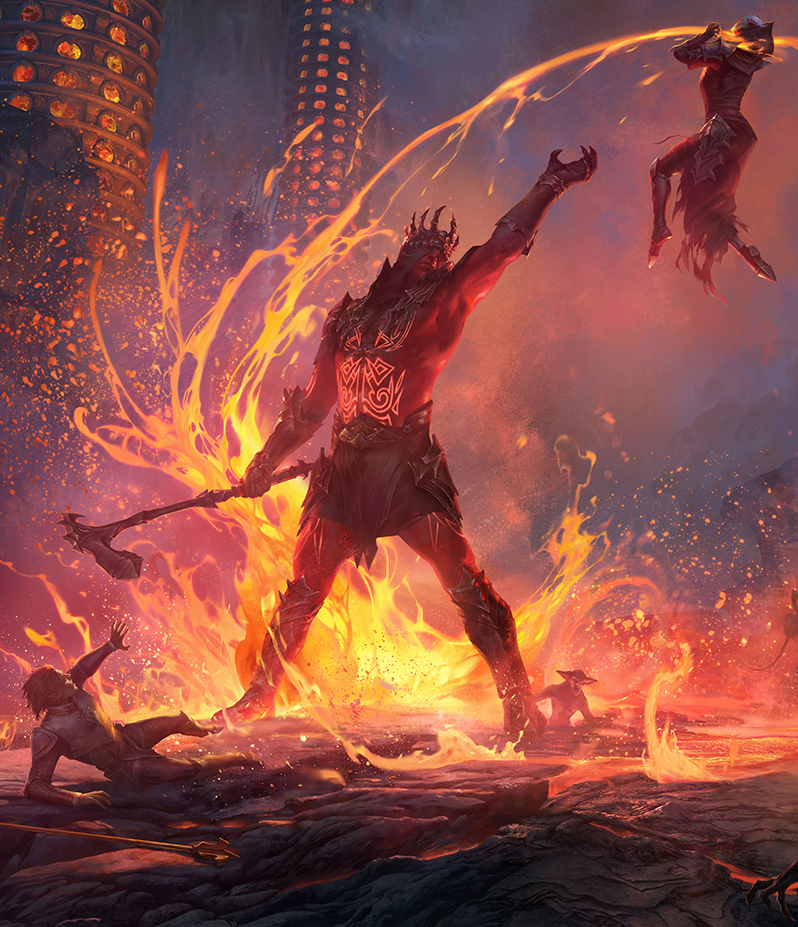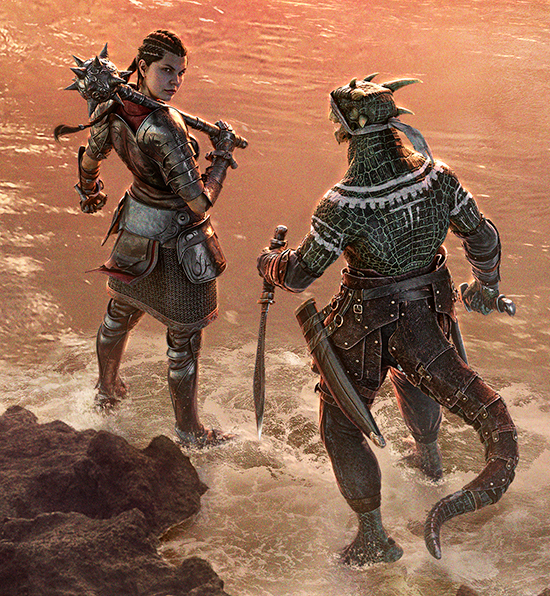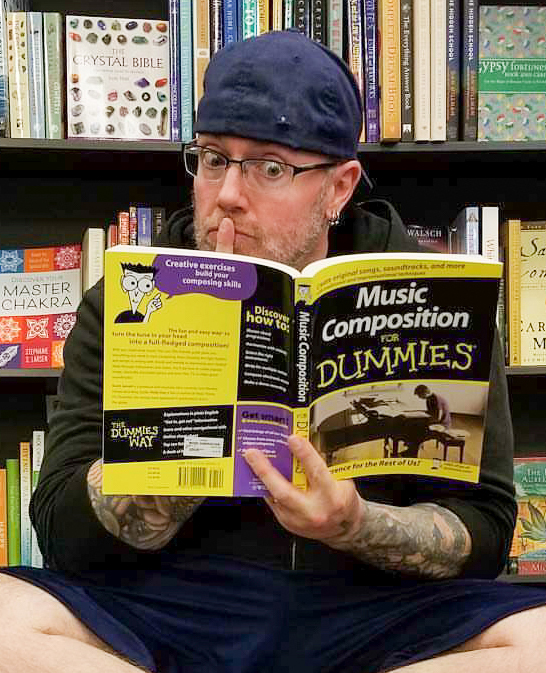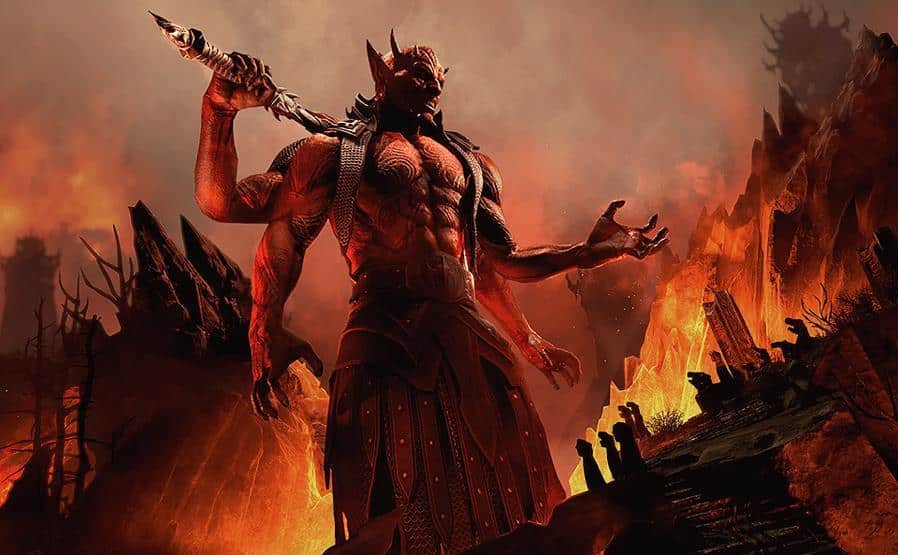The real world is full of fantasy worlds. They exist in books, film, television, tabletop games, in the minds of people, and of course, videogames. In 2021 the world has likely never been more grateful for an abundance of places to let your mind escape to.
But there are a lot of them. Many of them share common influences and end up sharing familiar traits–settings, creatures, mythology. Many of them also have distinct, loyal fanbases who cherish their particular favourite flavour of fantasy, and cherish them dearly.
For the creatives who devote their lives to building and maintaining those worlds, there’s a tough balance. There’s a natural inclination to want to stand out from the pack, but that needs to be measured with a serious consideration of the audience that devotes a similar amount of time to engrossing themselves in those worlds.
The Elder Scrolls series is one such example. A simple mention of ‘Skyrim‘ will light up the eyes of most people who spent some part of their lives playing videogames during the early 2010’s–the game has since been re-released on numerous platforms, including a tongue-in-cheek adaptation for Amazon Alexa. Skyrim’s predecessors Oblivion and Morrowind will incite a similar kind of response, and the series itself dates all the way back to 1994. To suggest that it might be one of the most beloved Western role-playing videogames in history would not be a stretch.

NO FINAL FANTASIES
But 2021 marks 10 years since Skyrim first released, so perpetuating the existence and legacy of the world it depicts has fallen upon The Elder Scrolls Online, a massively multiplayer role-playing game released in 2014. It has continued to host major content updates since, the latest of which, titled Blackwood, released on June 1.
To someone on the outside of any kind of fandom, it might all seem a bit trivial. But to the people behind properties like these–like CJ Grebb and Brad Derrick, the respective Art and Audio Directors of The Elder Scrolls Online–legacy is something that is constantly on their minds. They recently shared a wealth of perspective with me.
Grebb started with a bang: ‘The Elder Scrolls – I’ll put it up against any franchise you want to name. Your James Bonds, your Star Wars,’ he continued, “people love this game, this world. They name their kids after characters in these games. They meet each other online. They get married, because they met in Elder Scrolls Online.”
‘This is a real part of their lives, and you can’t take it anything other than seriously. You want to do the best by the fans who have made it such a successful franchise… the challenge to not disappoint people is always there.’
‘You have to have a deep understanding of what this needs to be before you start to draw it and before you start to paint it, then everything else flows from that.’
Grebb continually referred to his own leadership role as being one of a shepherd, working closely hand-in-hand with game’s stakeholders and other internal teams to make sure that every direction his team took – every new addition, piece of art, colour choice – was in line with the direction of The Elder Scrolls.
‘My concept artists are constantly emailing writers, our loremaster, whoever they need to, to make sure that before they put pen to paper and create something, that they understand what the purpose is.’
 ‘You have to have a deep understanding of what this needs to be before you start to draw it and before you start to paint it, then everything else flows from that.’
‘You have to have a deep understanding of what this needs to be before you start to draw it and before you start to paint it, then everything else flows from that.’
Brad Derrick, who has been with the Elder Scrolls Online team since its inception, has the benefit of being a lead with significant creative opportunities too. In addition to being the audio director, he also serves as the game’s primary composer. He reminisced on some of the careful oversight imposed on him at the beginning of the project:
“It’s like if you work on a Star Wars game – there are expectations. You can push the boundaries here and there a little bit. But there is a definition of that music and if you go too far, you break that definition.” Once The Elder Scrolls Online launched to the public and satisfied stylistic expectations, the oversight on him was lifted. Derrick’s restrictions are now largely self-imposed, and based on his profound understanding of the series’ style.
Grebb’s experience is similar: ‘When you’re in a creative position, and you’re surrounded by a lot of other creative people, the best you can do is just your best work and hope that everybody recognizes that you’re trying your best to maintain a level of quality and honor the product.’
THE ELDER SCROLLS FLAVOUR
It’s interesting to try and decipher what makes the world of The Elder Scrolls so unique among the ocean of fantasy properties. The series is known for its achievements in building an expansive, engrossing open-world to get completely lost and sidetracked in – anecdotes of players losing hundreds of hours to an Elder Scrolls game without even touching the primary narrative experience are common. But that affinity doesn’t just boil down to pure game structure.
My personal perspective is that The Elder Scrolls has always benefited from a subdued and more mature tone to its interpretation of fantasy tropes, with relatively unique inspirations for its flora and fauna – the enormous, flea-like Silt Striders from Morrowind always stick out in my mind. For Grebb, the key phrase is ‘grounded realism’.

The Elder Scrolls features various and distinct races of humans that appear to take inspiration from different cultural regions of Earth, which is a notable choice, as well as their own spin on familiar elves and orcs. The series also includes the feline Khajiit, who adopt Southeast Asian influences, and the lizard-like Argonians, who have a Mayan influence. Applying real-world cultural traits to non-human beings in fantasy worlds is often a point of contention. The Elder Scrolls Online team do their best to avoid that.
‘We try not to appropriate’, said Grebb. ‘We’re using stylistic influences, and we get to layer that over a rich fantasy world with lore that has been worked on since (The Elder Scrolls) Arena, which is now 20 some years ago.’
‘It gives us that realistic base that we can always build off of and it makes the world feel more real, and feel like there are real cultures. That there’s some real history in every place that you walk around in the game – that’s kind of what I consider the secret to our style.’
When it comes to the game’s musical treatment, things are a little bit more subtle. ‘At a distance you would call it orchestral or maybe “fantasy”, people that are familiar might say “oh, RPG fantasy music,”‘ Derrick jokes.
But the soaring scores of Elder Scrolls have a lot more depth in them than that, creating a sense of intimacy as well as majesty. One of Derrick’s first objectives when starting on the team was to deconstruct and reverse engineer the existing music for Elder Scrolls games and find out how things operated on a technical level. In developing music for the game, he injected a sense of otherworldliness into 19th century Romanticism-inspired orchestral structures using some surprisingly contemporary techniques:
“There are also a lot of extraneous things that are subtle, sound design elements and pads and synths and some supporting things that are not very prominent, but they give a lot of that music it’s otherworldly ethereal quality. It doesn’t ever really sound like you’re sitting in an orchestra hall listening to an orchestra, it’s sort of a stylized representation of what an orchestra is, which allows you to transport the listener to other places.’
Which is what any good fantasy world needs to achieve.
PERSONAL FANTASIES
But every creative work, no matter how prescriptive, is personal in some way. It’s those invitations to wiggle a little, and the small flourishes added that allow the creator, at the very least, to identify and claim ownership of a small piece belonging to a much bigger pie and keep up the creative morale.
It can be something as significant as relishing the opportunity to design a unique location or suite of assets as part of the art team; Grebb describes his personal favourite assignment as being invited to expand on the Blackreach region, first seen in Skyrim, for the Elder Scrolls Online expansion pack, Greymoor.
“[Skyrim] is sometimes almost a desert of a game in terms of its art direction. And then you get this moment where you go underground and you hit Blackreach, and it’s this real reach back to sort of the alien landscape that you knew when you played Morrowind.’ Grebb reminisced.

‘That was a really revelatory moment for me. So getting a chance to not only do a new section of Blackreach, but also to do three different biomes in Blackreach–we got to really explore. “Well, maybe it’s not all big glowing mushrooms! Maybe there are geodes, maybe there are glowing crystals in other sections of the cave!”‘
‘Getting to explore a new color palette, and getting to do basically a big overland zone that’s underground was a lot of fun. A big challenge, but I really love the way it turned out.’
For Derrick and the music of Elder Scrolls Online, his joys are again, a lot more subtle and a lot more personal. “My first love is drums. And musically, my first love is really heavy music… then I write some pretty little flute quintet or something and [my co-workers] are like, “Dude, I don’t get it. How did that come out of you?” And I’m like “Well, you know, it’s in there. It’s part of who I am also.”
‘I obviously have a predilection for rhythm… Because I’ve been so immersed in very sophisticated rhythmic things for so long, and only came into melody and harmony later, my skill set even to this day is a little lopsided, I often sit down and write something and focus way too much on the percussion and the rhythmic elements of things, and end up with something that is just far beyond what even needs to be there. So it influences a lot.’
‘I need somebody to come in once in a while and they’ll be like, “dude, settle down. That’s ridiculous.”’
Musically, my first love is really heavy music… then I write some pretty little flute quintet or something and [my co-workers] are like, “Dude, I don’t get it. How did that come out of you?” And I’m like “Well, you know, it’s in there. It’s part of who I am also.”
And of course, sometimes the most gratifying touches are the ones that almost no-one will pick up on, the creative things that we do only for ourselves.
“I will quote other Elder Scrolls pieces, I’ll just grab like a little fragment of something here or melody there. And sometimes it’s very deliberate. But then I often take the same thing, put it in a different register on a different instrument, play it half as fast, backwards – I can manipulate that as much as I want to provide other aspects of the piece, countermelodies or harmonic structures or whatever. That’s purely for me.”

SOMEONE ELSE’S FANTASY
No matter how challenging it may be or how restrictive it may seem, the impression I took from Grebb and Derrick was that they understand that the time they devote to The Elder Scrolls Online really means something to a lot of people–15 million people as of January 2020, according to Bethesda’s SVP of marketing. Knowing their efforts are appreciated keeps them going, and they had no hesitations in praising the hard work of their counterparts at other game studios, too.
‘I still think World of Warcraft has a great art style,” Grebb was quick to remark. The series has been a clear influence on many other fantasy games. ‘It is unique and it is of itself, like it is distinct. But to think that those guys made a really smart decision about where they wanted to take their art direction 18 years ago… They do it really well.”
For Derrick, a favourite is FromSoftware’s Bloodborne, which features an insidious, supernatural, Victorian world. ‘It’s a soundtrack that I’m obsessed with because it lines up a lot with some of the “classical music” that I write for ESO and some of the classical music that I like just as a fan, that sort of angular, dissonant, atonal, anything goes stuff. I adore that soundtrack completely.’
For the team making The Elder Scrolls Online, and the teams creating countless other fictional worlds, their day-to-day is devoted to expanding and perpetuating someone else’s fantasy. That work often goes unnoticed, but it creates a wealth of happiness, and the labour that goes into that deserves to be celebrated.





